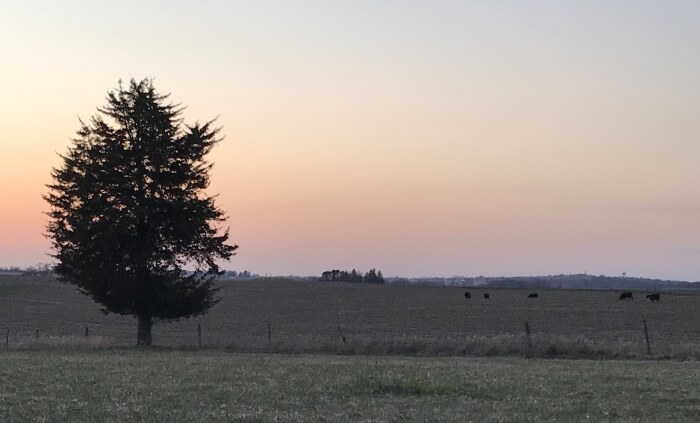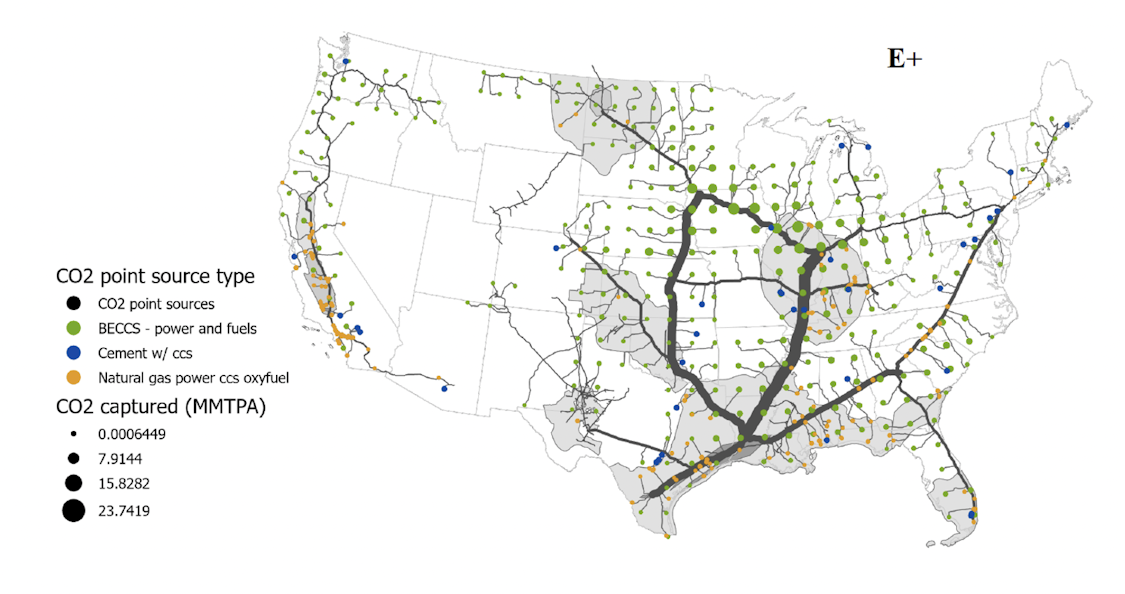Jessica Wiskus is a rural landowner in Linn County whose property lies in Navigator’s proposed pipeline route.
You may have heard about the three proposals to build carbon pipelines crossing Iowa: one by Summit Carbon Solutions, one by Navigator CO2 Ventures, and the newest for the Archer-Daniels-Midland Company (ADM). My neighbors and I in eastern Iowa are standing together to fight these pipelines (see “Against Navigator Pipeline” on YouTube, with more than 2,000 views). Here’s why.
Carbon pipelines have known safety concerns. Ongoing research using explosions in controlled environments seeks to determine the impact of ruptures. We do know that at concentrations of 10-15 percent, carbon dioxide causes loss of consciousness, convulsions, coma, or death. Accidents sometimes happen (see the pipeline rupture outside of Satartia, Mississippi in 2020).
Our communities are vulnerable.
Installation of a pipeline wrecks the integrity of our land, ruining soil structure and lowering yields. The threat of eminent domain to seize farmland for these projects undermines the property rights of the very farmers who supply grain to the ethanol plants.
Finally, carbon capture and sequestration is not necessary to secure ethanol’s future as a low-carbon fuel. No one knows this better than ADM. The company’s own Carbon Reduction Feasibility Study from March 2020 concluded that carbon capture and sequestration is the least effective option for lowering their greenhouse gas emissions.
Why? Because while carbon capture is supposed to address the carbon dioxide from the fermentation of corn, the real problem for ADM is the carbon dioxide emitted from coal-fired energy production. Coal is responsible for 70 percent of the company’s on-site emissions. That’s why ADM’s own report recommended that the company wean itself off coal and tighten up efficiency.
In other words, ADM already has a plan to stop the majority of its carbon emissions from being generated. The company can lower its carbon footprint without attempting to bury sins by shoving a toxic waste transportation system through Iowa farmland.
Another large producer of bioethanol, POET, published a Sustainability Report in 2021 that also suggests multiple ways to address climate change without carbon capture and sequestration.
It is plain that carbon pipelines are dangerous, destructive, and unnecessary. The real reason corporations are aiming to capture carbon dioxide from ethanol plants is not for ethanol’s sake, but because ethanol is a “pure” and inexpensive source of liquid CO2, which the oil and gas industry uses to extract more fossil fuels in a process called enhanced oil recovery (EOR).
It’s no coincidence that the proposed pipelines connect Illinois and North Dakota. That builds a national system transporting carbon dioxide from the biofuels industry to where the oil and gas industry needs it most.
One example from researchers at Princeton University, with funding by BP and Exxon, showing the capture of CO2 from biofuels and other sources, transported for fossil fuel recovery. “A key early enabler of cost-effective CCS is anticipated through enhanced oil recovery (EOR),” the report states (“CO2 Transport and Storage Infrastructure transition analysis,” December 2020).
We can keep our state from becoming a toxic waste transportation system. Republican State Senator Jeff Taylor of Sioux Center has introduced a bill (Senate File 2160) that would stop the use of eminent domain for private projects. The bill has been assigned to the Iowa Senate Commerce Committee and needs our support, since no subcommittee hearing has been scheduled.
We the people can make our voices heard and protect our land and our communities. Please—today—call State Senator Jason Schultz (712-269-2178 or 515-281-3371), who chairs the Senate Commerce Committee. Let him know that you want Senate File 2160 to pass.
Also, call your local Iowa House or Senate members (you can find contact information here). Please tell them you support SF 2160 and expect protection from the threat of eminent domain, now—before these corporations have shoved their pipelines through our ground.
I believe we can succeed if we stand shoulder to shoulder. Your neighbors will thank you, and I thank you for helping to protect the communities and the land we love.
Top image: Pasture on Jessica Wiskus’ Linn County farm. Photograph provided by the author and published with permission.



2 Comments
Another issue with carbon capture and injection
I’m not an engineer but compressing CO2 and injecting it into a rock formation is going to require a considerable amount of energy. How much natural gas or coal is going to need to be burned to run the compressors? At what point does this become a waste of effort?
ahackett Sat 5 Feb 12:45 PM
I was kind of horrified...
…by Jennifer Konfrst’s very lukewarm responses to questions about the carbon pipelines on IOWA PRESS. What is going on?
PrairieFan Mon 7 Feb 6:31 PM